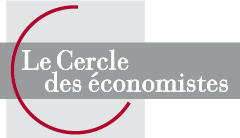Reconsidering global health
Overview
The health crisis linked to the coronavirus epidemic has largely contributed to repositioning our relationship with health as a good to be protected. In the space of a few months, the health status of the poorest countries, but also of developed countries, has become a major concern for all economic, political and social players. The rapid spread of the epidemic has rekindled criticism of globalisation and the free movement of people. Above all, however, the crisis has highlighted the need for a global and coordinated approach to public health.
While there are increasing calls for health cooperation, particularly in research and funding for an effective vaccine, the US withdrawal from WHO demonstrates that global health management is largely dependent on political and budgetary factors. In this context, does globalisation necessarily aggravate epidemics, or does it allow for better international health coordination? If epidemics know no borders, how can a health system be organised to respond effectively to pandemics? How can health be preserved as a public good in a tight budgetary context? Can we finally optimize the effectiveness and efficiency of health systems?
Speakers

-
World Health Organisation





Coordinator

Moderator

Contributions
Download (PDF 647.93 kB)












